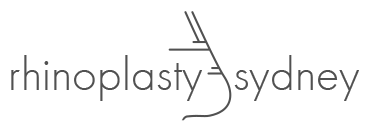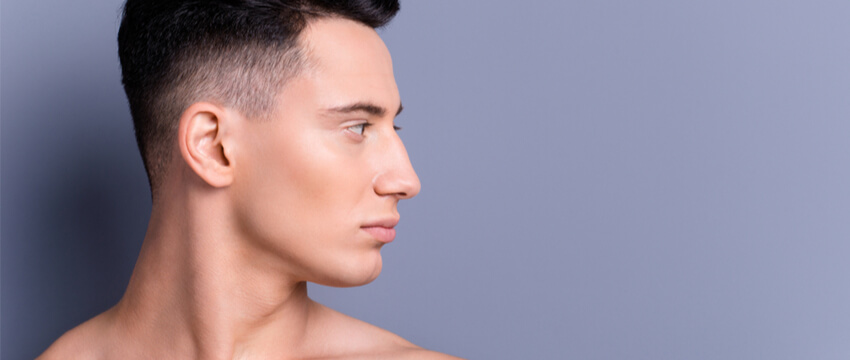We all have different nose types. Some may have straighter noses, while some may have natural curvature in theirs. Some have bumps due to trauma or injury, while others are natural dorsal humps. If you are not satisfied with your nasal features, you may have encountered a cosmetic procedure called rhinoplasty, but some would call it a nose job. Because of its popularity, many information about this cosmetic procedure circulates. Do you want to know real details about the rhinoplasty surgery? Let our expert doctors here at AU Rhinoplasty Sydney discuss with you all the factors and information you need to know before deciding if getting a nose job is for you.
What can a nose job surgery treat?
Rhinoplasty is a unique cosmetic medical option that addresses both functional and aesthetic problems of the nose. here are the different things that rhinoplasty can do for you:
Resizes your nose to make it proportional to your face
- Makes your nose narrow or wider depending on the natural symmetry
- Gets rid of bumps (dorsal humps) on the nasal bridge
- Removes enlarged or emphasised nasal tip
- Balances the size of the nostrils to avoid asymmetry or flaring
- Straightens crooked nose from a trauma or injury
- Corrects medical conditions like a deviated septum, sleep apnea, birth defects, etc.
- Complements the softness of your facial features
Who can undergo a nose job surgery?
Practically any adult who wants to improve the shape, size, position, and profile of their nose can undergo a rhinoplasty procedure. The only considerations that a patient needs to think about are their overall general health and their expectations. Let us explain why.
Adults with developed and complete facial growth can be good candidates for a rhinoplasty procedure. One needs to make sure that their facial bones have reached their mature stage before undergoing any reconstructive surgery because further growth may affect the final results of the operation.
Patients who have been smoking or taking alcohol more than occasionally may need to change their lifestyle first before undergoing any invasive medical procedure. Smoking and alcohol consumption can affect the healing process of the body and may cause severe adverse reactions to your cosmetic procedure.
High and unrealistic expectations can lead to dissatisfaction even for successful rhinoplasty surgery. If your goal in having a nose job is to have the perfect nose, then this is not the option for you. We will tell you right here, and aright now, that there is no such thing as a perfect nose. A successful nose job surgery can make your nose look more proportioned to your face with improved functional capacity.
How much is a nose job?

Just to give you an idea, rhinoplasty surgery may cost you from $5000 to a whopping $15000. This rough cost estimation is affected by the following factors:
- The complexity of your nasal issues
- The location where you want the surgery to take place
- The expertise of your chosen doctor
- The reason for the rhinoplasty surgery
- The need to have an additional surgery
- Your medical insurance coverage
What are known nose job risks and complications?
Because of their invasive nature, all surgical procedures have risks and foreseeable complications. It is up to your compliance with your doctor’s orders and the expertise of the doctor as to how you both can do your best to prevent or avoid these circumstances from happening. Here are some of the common dangers and obstacles that rhinoplasty may cause:
- Anaesthesia side effects
- Risk for infection
- Prolonged wound healing
- Unwanted scar formation
- Sensation problems (numbness or tingling)
- Problems with breathing
- Persistent swelling
- Prolonged discomfort or tenderness
- Permanent discoloration of the skin
- Nasal asymmetry
- Need to have an additional or revision surgery
How is nose job surgery performed?
Once your doctor discussed with you what needs to be done to prepare and expect for your operation, he will then schedule you for the surgery. Although there are standards that doctors follow to perform rhinoplasty, they also have their own methods on how to carry them out. Anaesthesia will be given either through local anaesthesia with sedation or general anaesthesia, whichever you doctor thinks would fit your condition and anxiety level. Incisions will be made inside in the nose (closed technique) and may require another external cut at the lower base of your nose (open technique). These incisions are made to make the structures to be reshaped or resized accessible and visible. The doctor may require the use of implants or harvested cartilages from different parts of the nose itself, the ear, or rarely, the rib. During the rhinoplasty surgery, the doctor may also manipulate the internal structures of the nose to address the patient’s issues with breathing or sleeping. After all the revisions and restructuring, incisions will be closed, and the nose will be supported by splints or nasal packing along with gauze dressings and bandages.
What should one expect during the recovery?
The nose job surgery is usually an outpatient surgery, so you can expect to be discharged within the day. Typical post-surgical complaints of swelling, tenderness, bruising, and numbness may be noted during the first few days or weeks following the surgery. Your doctor will give you prescription medications to alleviate these symptoms. Wound care and dressing changes will be instructed, and you just have to be compliant with your doctor’s dos and don’ts postoperatively. You can also expect that he will advise you to have at least two weeks off work so complete healing and recovery can be pursued, and no untoward accident or complications may arise. Work and activity restrictions and limitations will be enforced, and following them would enable you to appreciate the nose job surgery results faster. Make sure you also comply with the recommended follow-up consultations with your doctor so he can monitor your surgery and recovery progress, and you can also take this opportunity to ask him all your concerns regarding the results and your other issues.


 Resizes your nose to make it proportional to your face
Resizes your nose to make it proportional to your face
Recent Comments